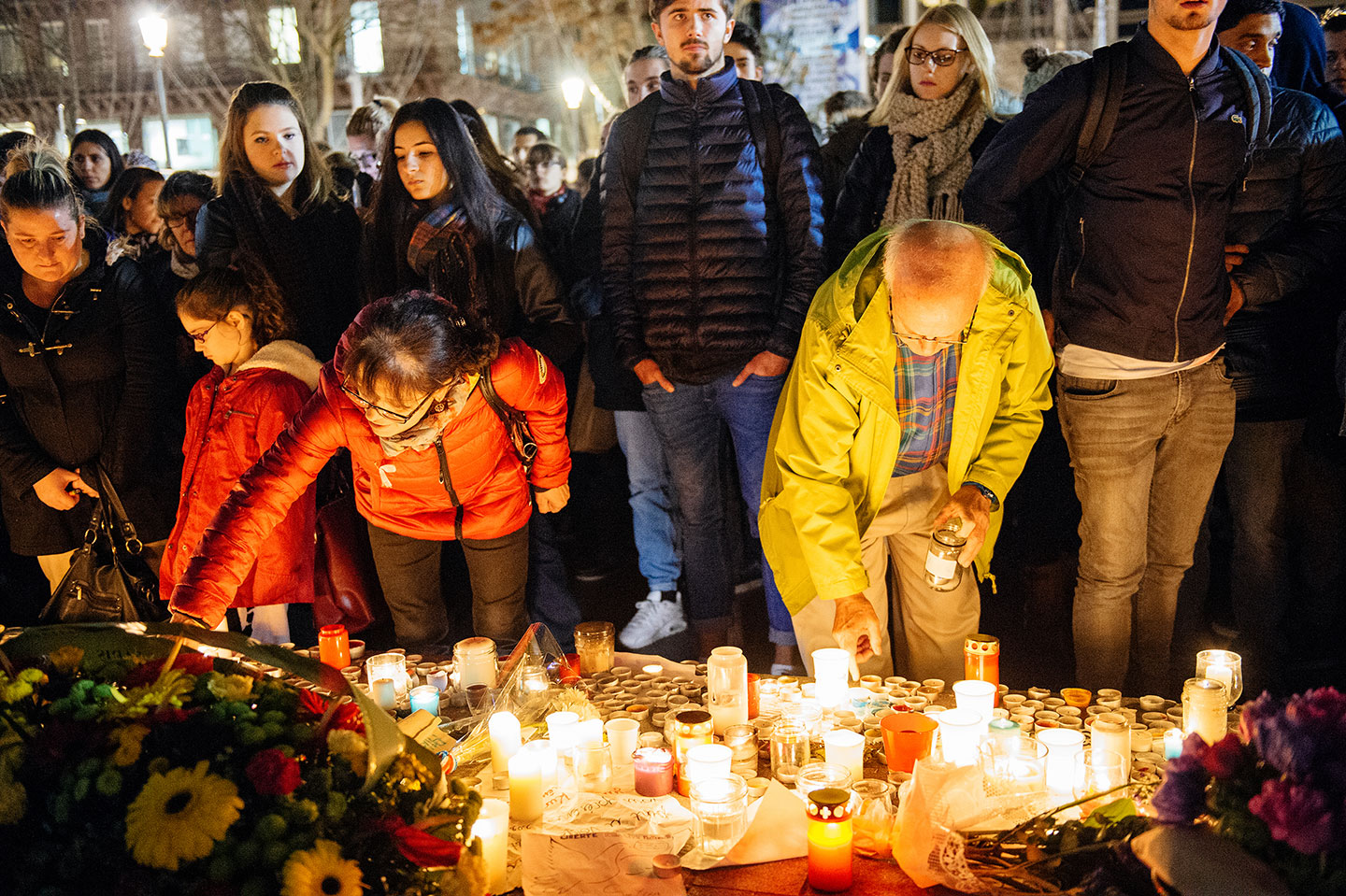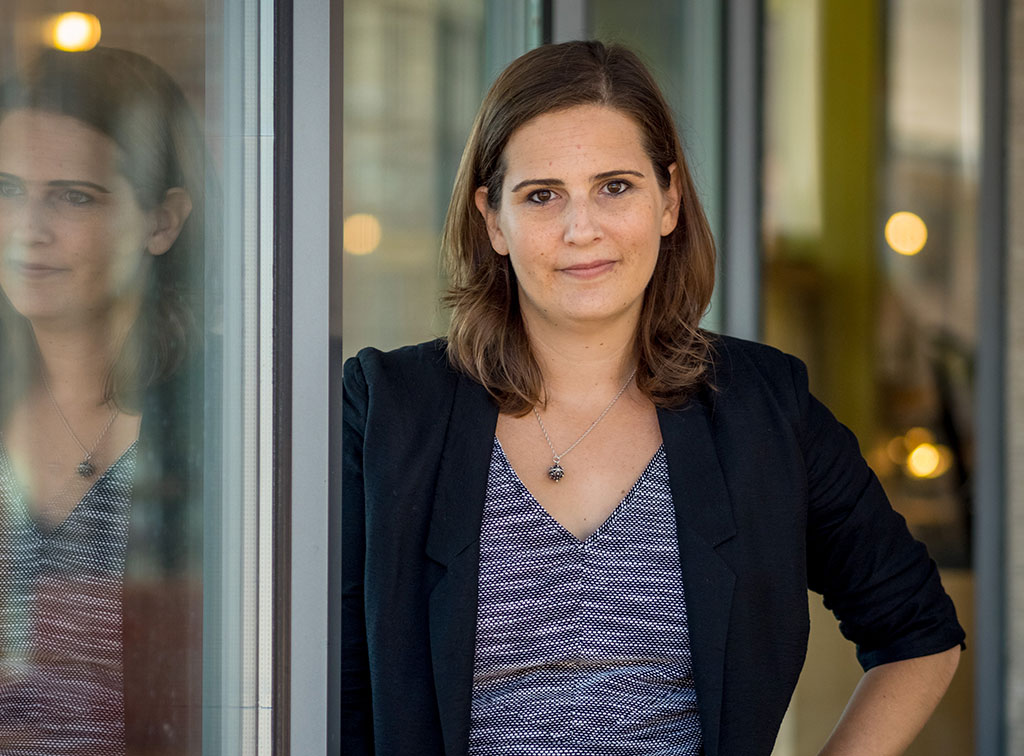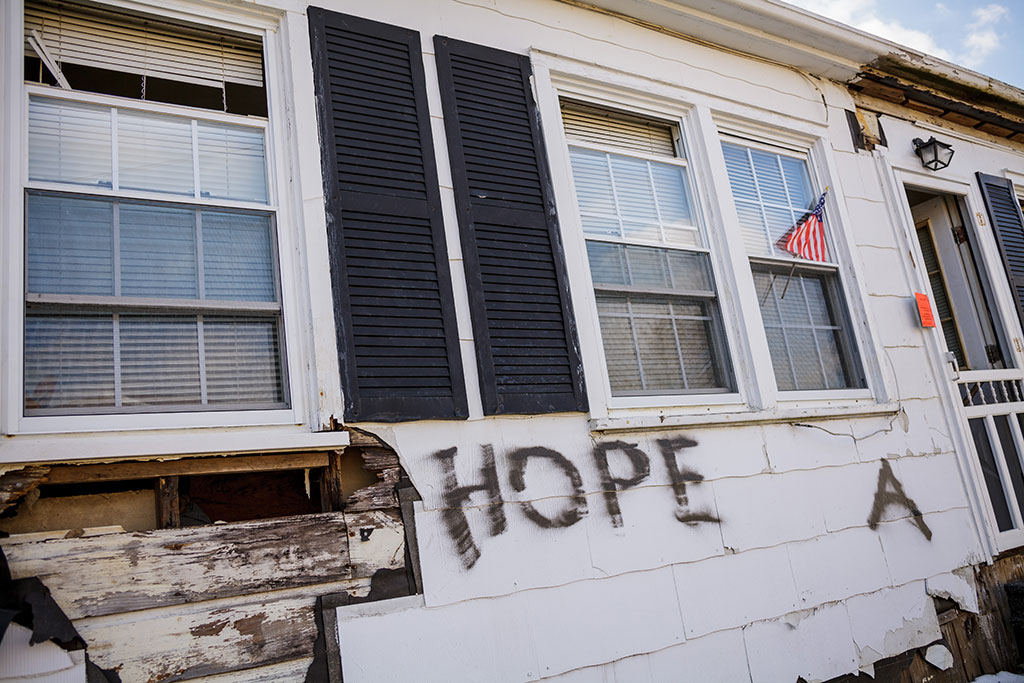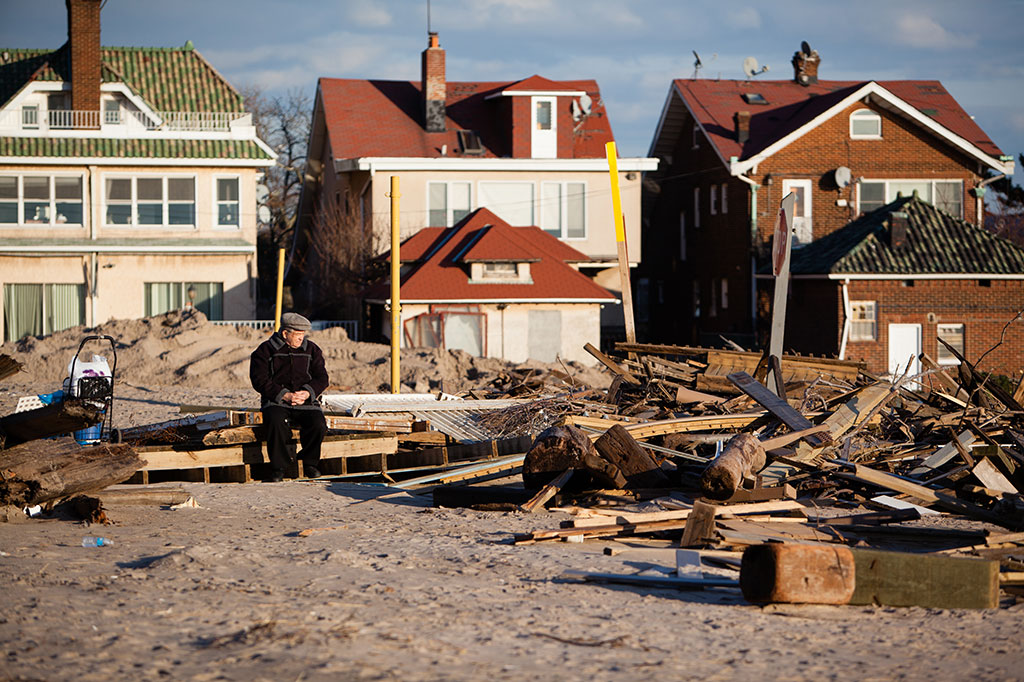
A Light in the Darkness
Campus lab explores the impact of trauma
Mourners place candles at a memorial for victims of the 2015 Paris terror attacks. Photo by Adrian Hancu.
How can Twitter data help locate those most in need of assistance after a terrorist attack? How do experiences of discrimination impact Muslim-American students’ feelings of well-being? Psychology Professor Sarah Lowe and other researchers at Montclair State’s new Trauma and Resilience Lab are asking these questions and others to determine the impact of traumatic events on mental health in order to help shape appropriate and effective community-based support.
“We ask the big questions,” explains Lowe, a psychology professor and researcher who opened the Lab last fall. “We want to determine who is at risk of suffering from post-traumatic stress syndrome and how we can prevent and mitigate the impact of traumatic events.”
Because people respond to trauma differently, the Trauma and Resilience Lab explores the long-term mental health consequences of highly stressful life events by looking at the pathways that lead from trauma to mental illness – as well as factors such as genetics and neighborhood demographics that shape survivor risk and resilience.
Says researcher Petty Tineo, who is working on a master’s degree in clinical psychology: “Unfortunately, these are events that almost any one of us can experience at some point in our lives. Our work helps us understand what some of these long-term consequences are, which is the first step in developing appropriate treatments and resources for people who have undergone these experiences.”
A unique lab
According to Lowe, the Lab uniquely expands the boundaries of clinical psychology through cross-disciplinary collaborations in fields such as psychiatry, epidemiology, public health, biostatistics and sociology.
Lowe continues to work on several long-term projects, including studies focusing on the aftermath of large-scale disasters such as Hurricane Katrina, Superstorm Sandy and the Deepwater Horizon oil spill. She has published initial results of a continuing study of single mothers in New Orleans who were community college students when Hurricane Katrina struck. “The main question is the extent to which Katrina altered the women’s life trajectories, both in terms of their mental and physical health, as well as their decisions regarding work, school, housing and child rearing,” Lowe notes. “Right now our team is in the process of collecting another round of follow-up data to learn more about the women’s longer-term, post-Katrina trajectories.
“But I’m not just a storm chaser,” she insists. “I’m interested in a broad range of experiences.” Her ongoing investigation into community resources that shaped mental health in the wake of Superstorm Sandy, for instance, led to a fruitful collaboration with data scientists that used geographically linked Twitter data to determine locations for potential mental health issues.
We want to determine who is at risk of suffering from post-traumatic stress syndrome and how we can prevent and mitigate the impact of traumatic events.
When terrorists attacked Paris in 2015, Lowe’s team analyzed Twitter data from Paris during and after the attacks to identify postattack spatial clusters of fear and sadness. “We hope our work, which was published in The Lancet, could help researchers formulate effective, community-based interventions,” says Lowe.
A recent sub-contract from Social and Scientific Systems, Inc. has funded Lowe’s continued participation in the National Institute of Environmental Health Sciences’ longitudinal Gulf Long-Term Follow-up Study (GuLF) of mental health outcomes among those who helped clean up the Deepwater Horizon oil spill.

Peer pressures
The Lab is currently working on several on-campus studies. Last fall, approximately 50 Muslim-American students participated in an online survey for a study that will delve into how their experiences of discrimination have impacted their emotional well-being.
This semester, Lowe’s team, which includes Tineo and graduate assistant Megan Young, have worked with the Muslim Students Association on recruiting additional participants in order to better represent the University’s Muslim student population.
“Everything we do in the Lab has some deeper connection to what is going on in society,” notes Young. “In light of what is going on in our world sociopolitically, our study targeting Muslim individuals is so, so important. It gives them a voice. Hopefully, the findings of this study will give us insight into ways we can improve the experiences of Muslim students.”
Young is also involved in another online campus survey – a collaboration with Yeshiva University Professor Kate Walsh. “We are examining how sexual experiences affect emotional well-being, looking specifically at issues of consent,” says Young.

According to Lowe, her student researchers are especially enthusiastic about this study, which will take a look at how even consensual sexual encounters can often result in feelings of guilt and shame. “When consent is not fully or wholeheartedly given, sexual encounters can be confusing and embarrassing and can ultimately compromise a person’s emotional well-being,” says Lowe. “We hope this study will inform efforts to help people manage their encounters with clearly communicated expectations.”
In another campus project, Tineo and other Lab researchers have teamed up with Psychology Professor Joshua Sandry and a group of his graduate and undergraduate students to investigate the neuropsychological correlates of PTSD among people with multiple sclerosis (MS) and healthy control subjects.
“We are generally interested in how PTSD symptomology in MS is related to cognitive function, brain function and brain structure, as well as the interrelationships across these variables,” explains Sandry, who is also a visiting scientist at the Kessler Foundation. “We plan to begin with analysis in the summer so we could have preliminary findings by fall or shortly thereafter.”
“I started the Lab, in part, to support my students and give them a richer experience in all aspects of research, including data collection,” recalls Lowe.
For senior psychology major Kaitlyn Komar, working on the three on-campus studies is a rewarding experience. “I used to only want to be a clinician, but after being in the Lab, I want to be a clinician and a researcher,” she says. “The way the mind works is intriguing to me and the Lab showed me that research is a way to understand different mental illnesses.”
